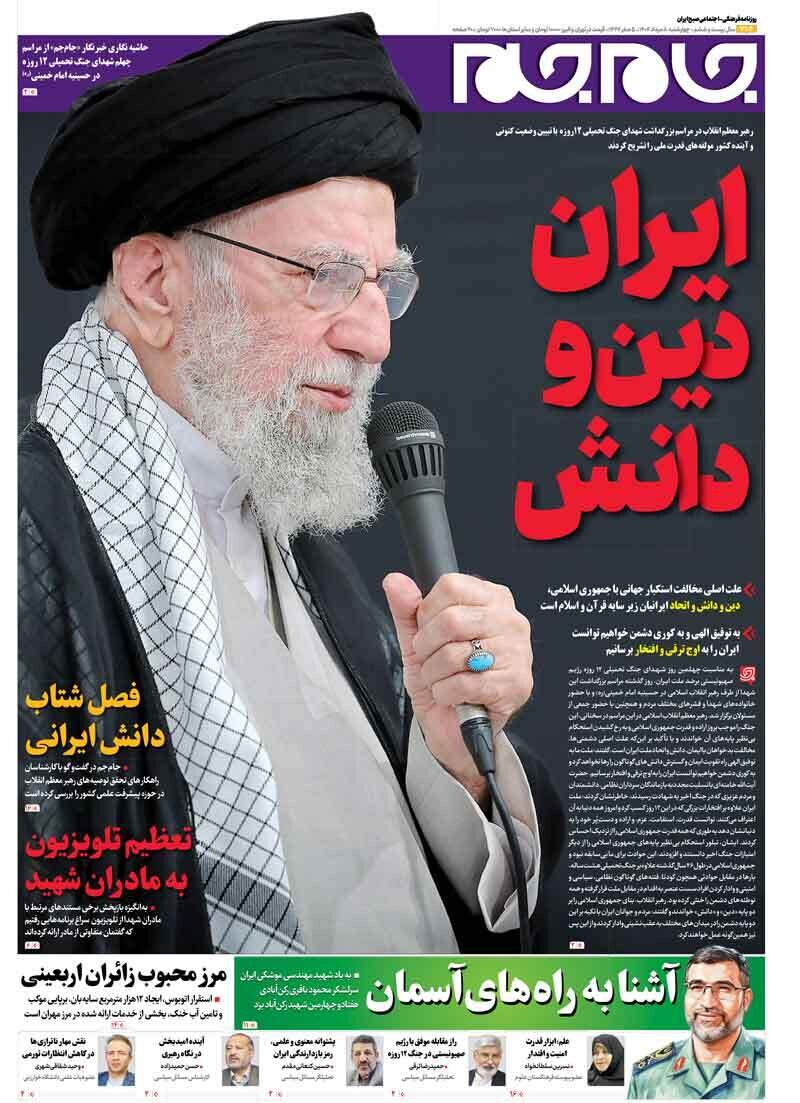Giving opportunity to Europe is a mistake

TEHRAN - In an interview with the Jam-e-Jam newspaper, former diplomat Alireza Sheikh Attar address Europe's hostility toward Iran, believing that negotiating with them is fruitless.
He said: Europe’s current stance toward Iran starting from setting the stage for aggression via resolutions in the IAEA Board of Governors, to Germany’s explicit approval of (the Israeli act of) aggression against Iran, and ultimately repeatedly threatening to activate the snapback mechanism that would reinstate UN Security Council sanctions prove that the three European countries (Britain, France and Germany) have little interest to cooperate with Iran. Their recent behavior in the past few rounds of talks, including the latest held in Istanbul, reveals a reluctance rooted in their growing awareness of Iran’s capabilities to resist sanctions and respond militarily, especially given their understanding of Israel’s recent attack and Iran’s response. Giving diplomatic opportunity to the Europeans is a grave error. None of the European nations is trustworthy. Europe has lost its previous economic power. And, given the global competition, it no longer qualifies as an influential actor in comparison to America, China, and BRICS. At most, it serves as a mere implementer of American and Israeli strategies.
Sobh-e-No: Iran strongly backs stability in the Caucasus
While the United States and its allies attempt to stoke unrest in the Caucasus, the Islamic Republic of Iran has adopted a logical and responsible position. Tehran is not only pursuing regional stability, but also advocating peaceful conflict resolution through regional dialogue free from foreign intervention. Recent military drills by Iran’s army in the northwest of the country underscore that Tehran will not allow the Caucasus to become a staging ground for anti-Iran operations. The Republic of Azerbaijan now faces a strategic decision: Either maintain political independence and refrain from joining seditious coalitions and take steps with neighboring states toward shared development, or, by repeating Ukraine’s path, become a puppet of the United States and global Zionism and face domestic turmoil, security threats, and regional isolation. Iran, without a doubt, stands prepared to support peace and stability in the Caucasus as it has in the past, but it will not allow its national security to be compromised by Western greed. History may be repeating itself, but learning from its lessons remains the only path to overcoming future challenges.
Etemad: Diplomacy or war?
In a note, Etemad discussed the revival of diplomacy with Europe and wrote: Europe is very interested in lifting sanctions on Iran and normalizing the situation to revive its traditional trade with the rich Middle East, and Iran, by pursuing the path of restoring diplomacy, should take advantage of this opportunity. In this regard, the European troika, while seeking to activate the snapback mechanism, is trying to play an effective role in managing the crises. The European troika believes that the current (secondary) sanctions on Iran were imposed by the United States and that European banks and companies have abided them reluctantly. However, it is believed that Europe considers a future lifting of sanctions on Iran dependent on the type of practical steps that Iran will take in the future. Europe and the U.S. (along with Iran, China and Russia) were involved in drafting the JCPOA, and the snapback mechanism was an important knot because they did not want to give Iran immunity from the return of condemnatory resolutions if Tehran violates the JCPOA. But in the new circumstances, they consider it up to Iran to decide how much it can prevent its activation in the remaining short time and making meaningful concessions, securing an agreement, and building trust!
Ettelaat: Eyes are on Tehran
In a commentary, Ettelaat addressed the visit of Ron Dermer, Israel’s Minister of Strategic Affairs, and Tzachi Hanegbi, the regime’s National Security Advisor, to the U.S. It wrote: The recent visit of Israeli officials to the U.S. shows that although the attack on Iran has ended, the Iranian is still open. The security map of the region has changed, and Israel and Iran have gone beyond the limits of warning and threat and have tested the power of unity in a military conflict. The U.S. is also fluctuating between the two approaches of pressure and negotiation. In the meantime, all eyes are on Tehran to see what direction it will take in its ongoing interactions with Europe and the International Atomic Energy Agency. The important point is that after the recent war, Iran has also shown signs of returning to the negotiating table. The different and relatively mild statements by Pezeshkian and Araghchi about negotiations should not be ignored. However, Tehran is simultaneously sending the message that a military response will be inevitable if an attack is repeated. It is obvious that no decision about the future of the region will be made without considering Iran’s position, military capabilities, and foreign policy approach.
Leave a Comment